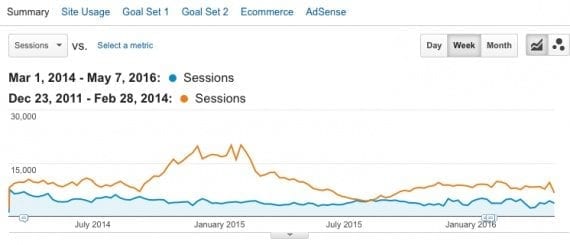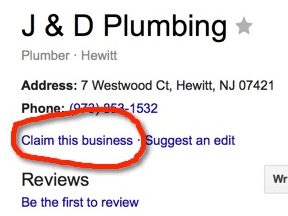If you are an ecommerce retailer or a servicer provider with nationwide clients, you may not want to claim your online local business listings. In fact, there are situations where claiming your local listings could actually hurt traffic to your website. In this article, I’ll help you decide if claiming your local listings and getting local citations is right for your business.
When it comes to Google’s search results, claiming your local listings can be harmful if you’re not truly a local business. Claiming your local business listings can restrict your website traffic to only visitors from your local area. You could miss out on international visitors, or even visitors from another state in the United States.
Where Are Your Customers?
To decide if you should claim your local business listings, first think about your customers. Here are a few questions to help.
- Do you have a brick-and-mortar location(s) that shoppers visit? If so, claim your local business listings.
- Do you visit your customers at their location? This could be, for example, a service business, such as carpet cleaning. If so, claim your local listings.
- Do the search queries (keywords) from visitors to your website typically include a city name? If yes, you should claim your local listings.
In other words, claim local listings if your customers and prospects are local. By claiming local listings, you’re telling the search engines that you do most of your business in that city. It’s an important distinction.
If most of your customers do not live in your local area, claiming the local listing could have a devastating effect. Take, for example, an event ticketing business in Chicago that I’m aware of. The business had been online for over 12 years. Consumers ordered tickets online to concerts and sporting events from the company, which then delivered the tickets via overnight delivery. In 100 percent of the cases, the customers never actually came to the company’s location, which is in the Chicago, Ill. area. In fact, most customers lived elsewhere in the U.S.
When this business claimed its Google My Business listing, it severely reduced the company’s sales. It turned out that once the business was verified, Google thought that the customers were located in the Chicago area.
Google verified the company’s local listing via postcard, and Google began to list the business in the Google Maps listings. For certain ticket-related search queries, the business began to appear in search results only for searchers in the Chicago area — within 500 miles of the business’s location. Since the company’s customers were mainly nationwide, its website experienced a large traffic drop.

In January 2015, a nationwide ticket seller based in Chicago claimed its Google local listing. The effect was to severely reduce web traffic, as shown in this graph.
Interestingly enough, the traffic restriction was not necessarily limited to mobile search. To be sure, if someone in the Chicago area searched for tickets on her mobile phone, the company showed up well in the search results. And for mobile searcher from outside of the 500 mile radius of Chicago, Google did not list the website prominently in the search results.
But when I analyzed the site’s traffic based on location, regardless of device, there were significant traffic drops from certain cities, such as New York. Because the site was not located in New York, Google wasn’t showing the site to potential customers there.
In short, for online businesses with primarily nationwide or international customers that do not buy at physical locations, it makes no sense to claim local listings.




